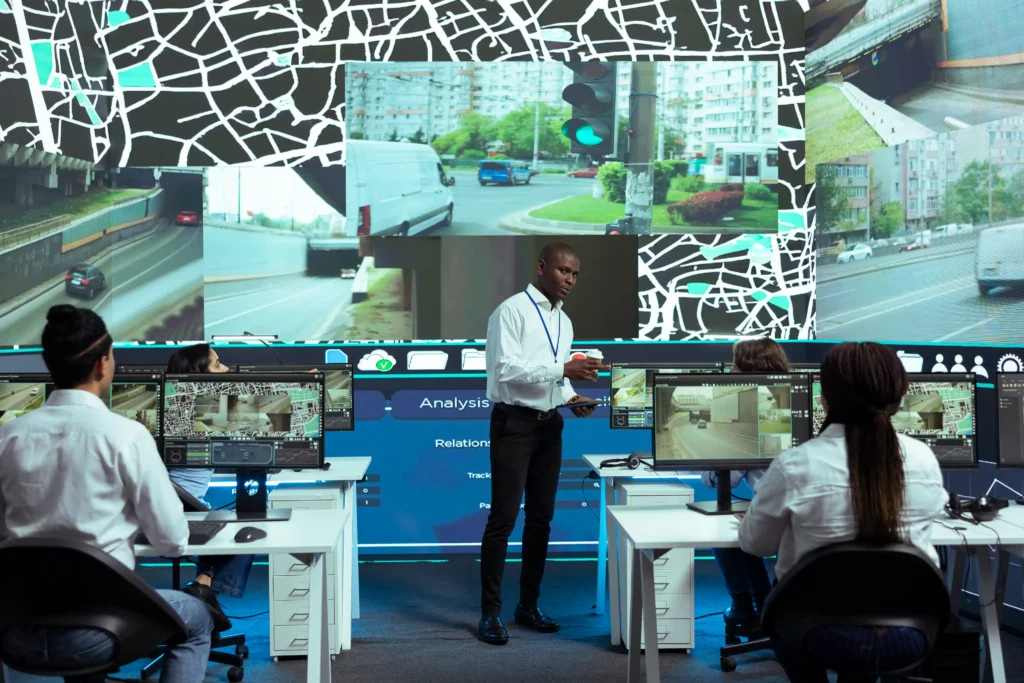Employee monitoring software is secretly reading your work conversations right now. Casual chat about your weekend plans with a teammate, your manager has access to it. The frustrated message you sent about a difficult client? It’s sitting in your company’s database.
Most workers believe their internal messages stay between colleagues, but that’s far from the truth. Companies deploy sophisticated tracking tools that capture every keystroke, email, and instant message you send during work hours. These surveillance systems create detailed profiles of your communication patterns, mood, and productivity levels.
Your employer knows who you talk to most, what topics you discuss, and how often you complain. The technology goes beyond simple message scanning; it analyzes your tone, flags certain words, and even predicts your job satisfaction.
1. The Shocking Scale Of Workplace Surveillance In 2025
Most Companies Already Track You

You probably think workplace surveillance affects a few unlucky workers. You’re wrong. 74% of U.S. employers now use tracking tools to watch what you do at work. This isn’t going away. The employee monitoring software market will hit $6.9 billion by 2030. Real money, chasing your keystrokes and mouse clicks.
It’s Getting Worse Fast

The numbers get worse. 70% of large companies will monitor employees. Your boss probably already has workplace surveillance technology installed.
Workers Are Fighting Back
Most workers are fighting back. 54% of employees would quit over excessive monitoring. And 78% want laws requiring companies to tell you when they’re watching.
The Hidden Problem You Don’t See

The biggest problem, 44% of employees don’t even know if their company uses biometric monitoring. You might be scanned and tracked without knowing it. Your employer likely monitors you more than you think. And most workers have no idea how deep it goes.
2. The Surveillance Tools Your Boss Uses Right Now
Your Screen Is Always Being Watched

Companies don’t just peek over your shoulder anymore. They record everything you do on your computer. Screen recording and keystroke logging capture every click, every word you type, and every website you visit.
Your Location Gets Tracked Too

GPS location tracking follows you everywhere during work hours. Some companies track your breaks, how long you take lunch, and which route you drive.
The Creepy AI Stuff
It gets weird. AI analyzes your email tone to see if you’re stressed or unhappy. Webcam feeds get scanned to check if you’re paying attention. Companies use wearable badges that track who you talk to and for how long.
3. What Your Company Can Legally Track?
Most Monitoring Is Legal

Your company can legally watch almost everything you do at work. The Electronic Communications Privacy Act (ECPA) lets employers monitor any device they own. They need a business purpose, almost anything. If you use a company computer, phone, or email, they can track it all.
Some States Give You More Protection

California’s CCPA forces companies to tell you what they track. Connecticut and Delaware require written notice before any employee monitoring software gets installed. New York has specific rules for electronic monitoring notices. Illinois is the toughest. They restrict biometric data collection. Castle faces a potential $17 billion fine for scanning employee fingerprints without proper consent.
What They Can’t Do?

Even companies have limits. They can’t put cameras in bathrooms or changing rooms. They can’t spy on union activities. Some states require your consent before recording phone calls. And they can’t demand access to your personal social media accounts. The line between legal and illegal gets blurry fast.
4. How To Tell If Your Boss Is Watching You?
Check Your Devices Right Now

On Windows, open Task Manager and look for unknown programs running. Go to Settings > Accounts > Access Work or School to see if workplace surveillance technology is installed. On Mac, check Activity Monitor for suspicious software. Look under Privacy & Security > Profiles for monitoring profiles. On your phone, check iPhone Settings > General > VPN > Device Management. Android users should find Device Admin Apps in settings.
Your Computer Gives It Away

Your computer acts weird when the monitoring software runs. Slow performance during work hours means something’s eating up processing power. Unknown software installations and unusual network activity are dead giveaways; it is another warning sign. Pop-up notifications about monitoring make it obvious.
Just Ask Directly

The easiest way is to ask HR about monitoring policies. Check your employee handbook for surveillance sections. Request transparency about what data they collect. Look for workplace surveillance disclosure notices posted around the office. Some states require these. Most companies hide their monitoring.
5. The Hidden Costs Of Workplace Surveillance
Employees Hate Being Watched

Surveillance destroys workplace happiness. 56% of workers feel stressed when they’re monitored without knowing it. 31% use anti-tracking tools to protect themselves from employee monitoring software. 49% fake activity to avoid getting flagged by surveillance systems. They click around randomly and keep moving their mouse to look busy.
Surveillance Backfires on Companies

Companies think monitoring helps productivity. It doesn’t. Decreased creativity and risk-taking happen when people feel watched. Reduced employee trust and morale poison the workplace culture. Productivity theater replaces real work. Employees often focus on appearing busy rather than actually accomplishing tasks.
Companies Pay Huge Fines

Legal bills keep growing. Meta paid $1.4 billion for biometric data violations in 2024. LinkedIn got fined €310 million for GDPR violations. Amazon France paid €32 million for excessive employee monitoring. Class-action lawsuits, under state privacy laws, are coming. Your workplace privacy rights have more protection than companies admit.
6. The Future of Workplace Surveillance
Surveillance Is Getting Scarier

Workplace surveillance technology keeps getting more invasive. AI-powered behavior prediction will guess what you’ll do before you do it. Advanced biometric monitoring will track your heartbeat and stress levels. Sentiment analysis will read your emails and messages to judge your mood. Predictive analytics will decide if you’re about to quit or get fired.
Laws Are Finally Catching Up

8 new state privacy laws launched in 2025. Penalties jumped to $7,500 per violation. States work together on cross-border enforcement now. Some industries face specific monitoring restrictions.
Good Changes Are Coming

Stricter transparency requirements will force companies to tell you what they track. Employee consent mandates mean you’ll have more say in monitoring. Data minimization principles limit what companies can collect. Right to disconnect protections will stop after-hours surveillance. Laws are slowly catching up to technology.


